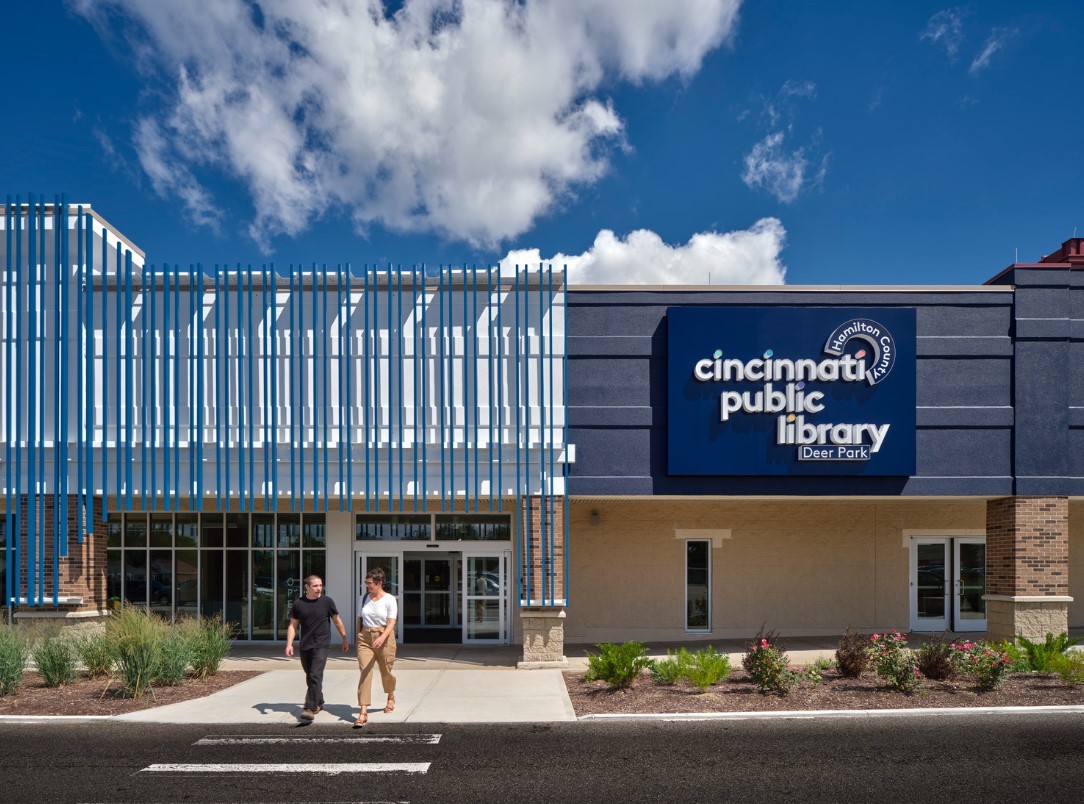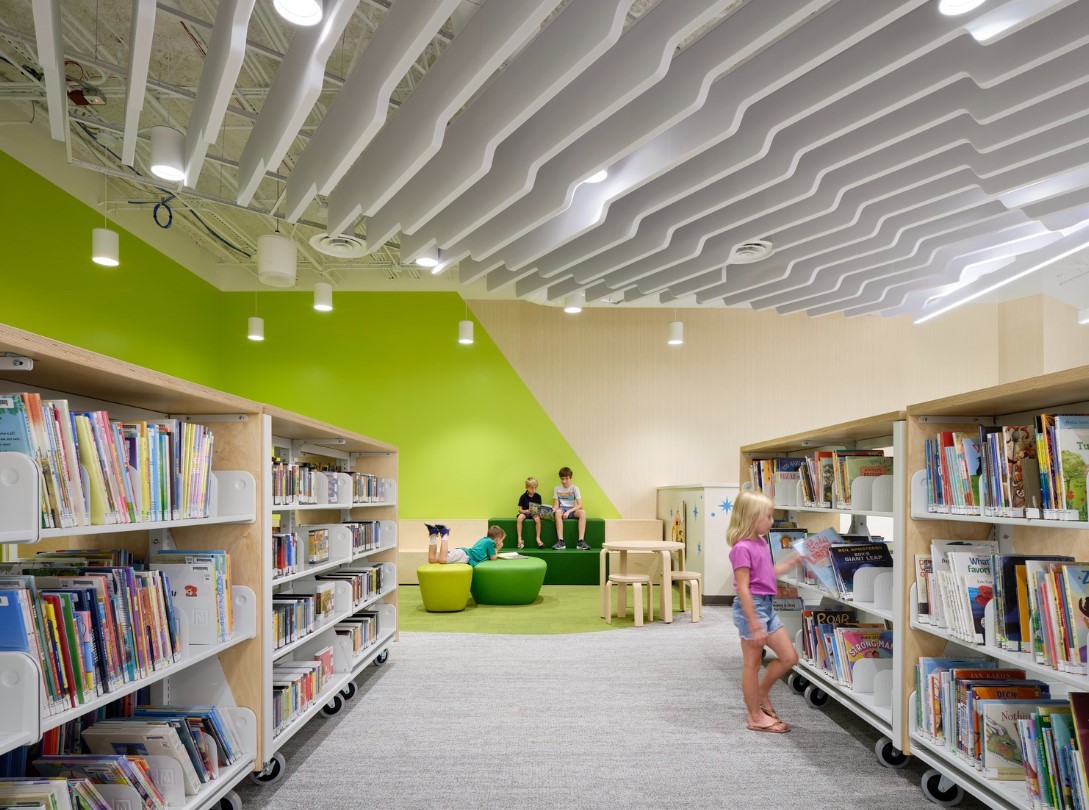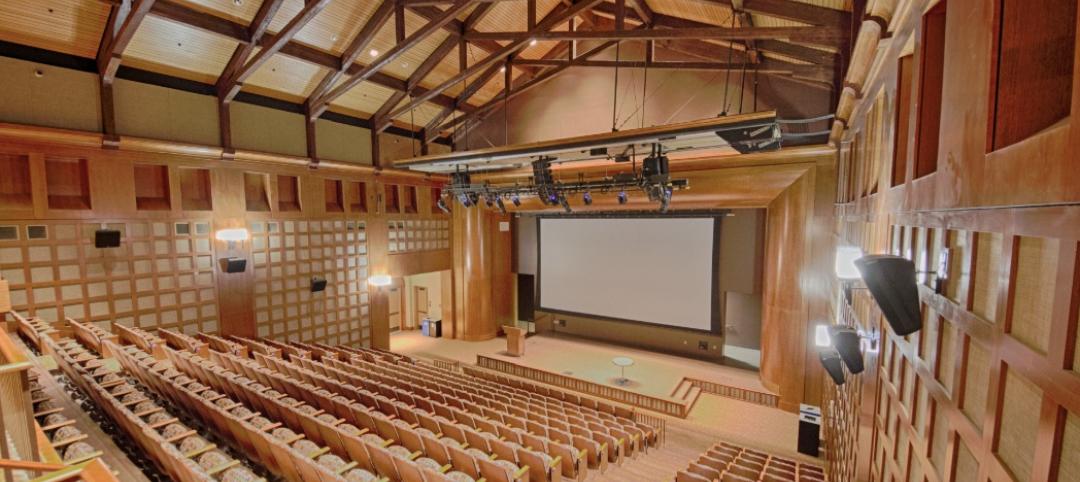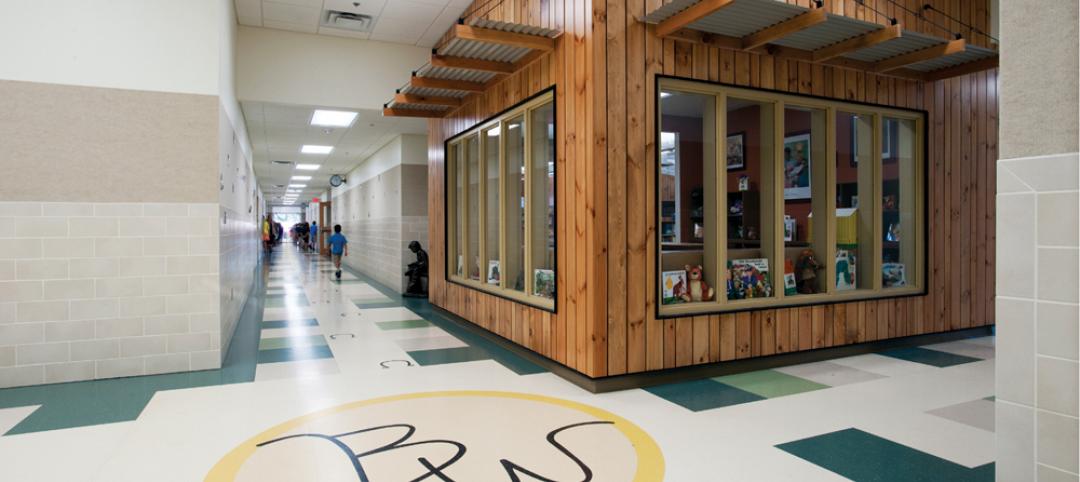What was once an abandoned T.J. Maxx store in a shopping center is now a vibrant, inviting public library. The Cincinnati & Hamilton County Public Library (CHPL) has transformed the ghost store into the new Deer Park Library, designed by GBBN.
The formerly drab exterior now has a striking blue color and aluminum tubes on the facade, making the library clearly visible from the street. Large new windows in the facade and roof bring daylight into the once-dark retail store, while curved interior walls break up the space.
Five times larger than its previous space, the new 25,000-sf Deer Park Library has been organized around a central zone called The Marketplace. This open, flexible area has been designed to encourage mingling, lounging, and discovery. From the Marketplace, visitors can view all the library’s offerings, including computer workstations and study pods.

GBBN used the store’s large floor plate to create distinct zones for different age groups and activities. The zones have been denoted with mobile furniture and acoustically private yet transparent study pods, and include quiet spaces, a community meeting room, and space for messy creativity. The flexible space can be reconfigured and allows different activities to happen at the same time.
The kid zone invites children to spend time there with bright pops of color and a mix of soft and hard furniture. Custom-designed acoustic ceiling baffles both provide visual interest and dampen sound.
“The community let us know we needed a modern, expanded library, a place to connect, create, and collaborate, and we are truly pleased with how this renovation and expansion turned out,” Diane Cunningham Redden, CHPL board of trustees president, said in a statement.
One sign of the project’s success: The library had to invest in an additional computer terminal to handle the volume of checkouts.
On the Building Team:
Client: Cincinnati & Hamilton County Public Library
Architecture and design: GBBN
Civil engineer: Bayer Becker
Structural engineer: Schaefer
MEP engineer: Motz Engineering
Technology: BCL Enterprise
Contractor: Perkins/Carmack



Related Stories
| Jul 18, 2014
Top Engineering/Architecture Firms [2014 Giants 300 Report]
Jacobs, AECOM, Parsons Brinckerhoff top Building Design+Construction's 2014 ranking of the largest engineering/architecture firms in the United States.
| Jul 18, 2014
Top Engineering Firms [2014 Giants 300 Report]
Fluor, Arup, Day & Zimmermann top Building Design+Construction's 2014 ranking of the largest engineering firms in the United States.
| Jul 18, 2014
Top Architecture Firms [2014 Giants 300 Report]
Gensler, Perkins+Will, NBBJ top Building Design+Construction's 2014 ranking of the largest architecture firms in the United States.
| Jul 18, 2014
2014 Giants 300 Report
Building Design+Construction magazine's annual ranking the nation's largest architecture, engineering, and construction firms in the U.S.
| Jul 7, 2014
7 emerging design trends in brick buildings
From wild architectural shapes to unique color blends and pattern arrangements, these projects demonstrate the design possibilities of brick.
| Jul 2, 2014
Emerging trends in commercial flooring
Rectangular tiles, digital graphic applications, the resurgence of terrazzo, and product transparency headline today’s commercial flooring trends.
| Jun 30, 2014
Research finds continued growth of design-build throughout United States
New research findings indicate that for the first time more than half of projects above $10 million are being completed through design-build project delivery.
| Jun 18, 2014
Arup uses 3D printing to fabricate one-of-a-kind structural steel components
The firm's research shows that 3D printing has the potential to reduce costs, cut waste, and slash the carbon footprint of the construction sector.
| Jun 16, 2014
6 U.S. cities at the forefront of innovation districts
A new Brookings Institution study records the emergence of “competitive places that are also cool spaces.”
| Jun 12, 2014
Austrian university develops 'inflatable' concrete dome method
Constructing a concrete dome is a costly process, but this may change soon. A team from the Vienna University of Technology has developed a method that allows concrete domes to form with the use of air and steel cables instead of expensive, timber supporting structures.
















